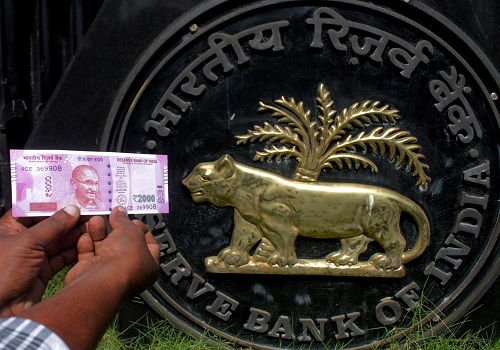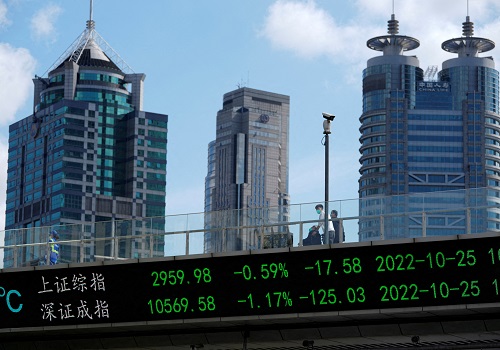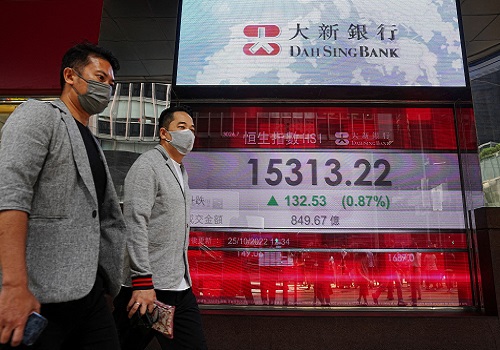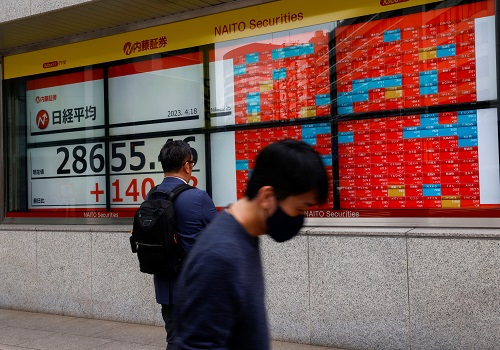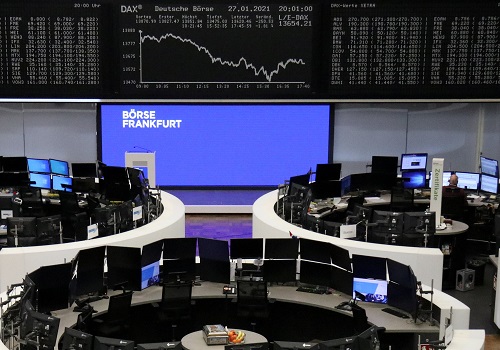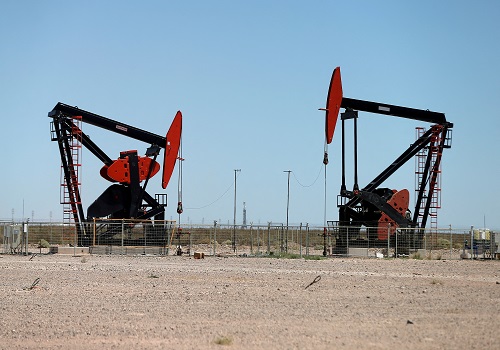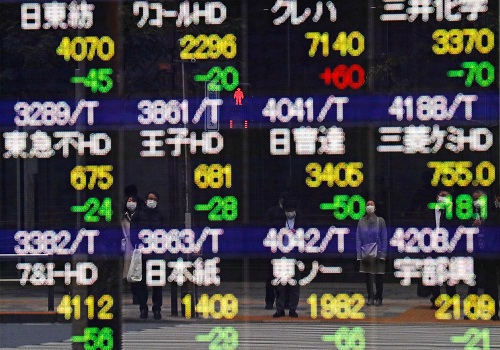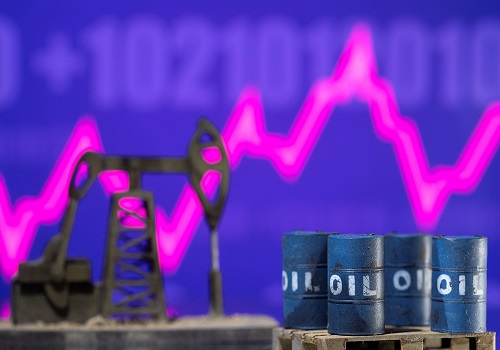Asian stocks stumble as weak China data fan global growth worries
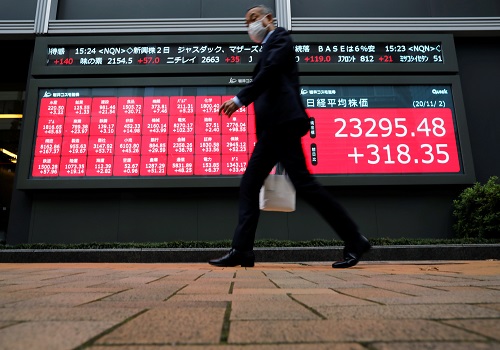
Follow us Now on Telegram ! Get daily 10 - 12 important updates on Business, Finance and Investment. Join our Telegram Channel
HONG KONG - Asian shares fell on Wednesday as weaker-than-expected Chinese economic data reinforced worries about slowing global growth, amid fraught nerves over pandemic-related business disruptions and central banks' plans to taper stimulus.
MSCI's broadest index of Asia-Pacific shares outside Japan dropped 0.61%, while Tokyo's Nikkei shed 0.49%, moving off a more than 31-year closing-high the day before.
After the data, Chinese blue chips were down 0.73%, but pared earlier losses on hopes Beijing will roll out more stimulus.
However, futures indicated a steadier open for European and U.S. equity markets, with the pan-region Euro Stoxx 50 futures up 0.08% and FTSE futures 0.11% higher.
A burst of data out of China showed growth in its factory and retail sectors continued to falter in August with output and sales growth hitting one-year lows as fresh coronavirus outbreaks and supply disruptions threatened its economic recovery.
Retail sales grew at the slowest pace since August 2020 and missed analysts' expectations, while industrial output also rose at a weaker pace from July, underscoring recent signs of slackening momentum in China and adding to expectations that Beijing will need to offer more support measures in coming months.
"This is not a dip, it is a falling trend that will last at least until the end of this year," said Iris Pang, chief China economist at ING.
Pang said she anticipated a 0.5 percentage point cut in Chinese banks' reserve requirement ratio (RRR) in October, and said more fiscal support was needed for small- and medium-sized companies.
Shares in property developer Evergrande, which is scrambling to raise funds to pay its many lenders and suppliers, fell for the third consecutive day on Wednesday, losing as much as 5.1% to their lowest since January 2014.
Rating agency Fitch said that numerous sectors could be exposed to heightened credit risk if China's No.2 property developer were to default, although the overall impact on the banking sector would be manageable.
Hong Kong's benchmark Hang Seng index shed 1.4%, as casino stocks plunged after Macau began a public consultation which investors fear will lead to tighter regulations in the world's largest gambling hub.
An index tracking gaming stocks fell 20%, while Wynn Macau fell as much as 34% to a record low.
Markets also remained focused on the Federal Reserve's timeline for tapering its massive emergency stimulus.
“There is uncertainty in markets at the moment as investors wait to see what the Federal Reserve will do about tapering their asset purchases, which depends on the state of the labour market and the inflation situation,” said Sean Debow Asia CEO of Eurizon Asset Management.
Debow said greater clarity would emerge on both in the coming weeks, though for now markets were quick to react to any data points on employment and inflation.
Overnight the U.S. Labor Department reported the Consumer Price Index (CPI) in August posted its smallest gain in six months, suggesting inflation has probably peaked, aligning with Fed Chair Jerome Powell's long-held belief that high inflation is transitory.
Lower inflation suggests the Fed will be under less pressure to begin trimming its vast asset purchases, and, as a result, the yield on the benchmark 10-year note US10YT=RR fell as low as 1.263%, its lowest since Aug. 24.
Yields recovered slightly and were little changed in Asia on Wednesday at 1.284%, while the dollar was steady also having slipped against a basket of its peers on the inflation figures.
Other currencies were also largely steady in Asian hours, with sterling particularly quiet ahead of British CPI figures. A strong reading could potentially add pressure on the Bank of England to raise rates.
Oil prices gained on a larger than expected drawdown in crude oil stocks in the United States, with U.S. crude gaining 0.68% to $70.94 a barrel and Brent crude rising 0.61% to $74.05 per barrel. [O/R]
Spot gold was little changed, trading at $1802.0374 per ounce off having fallen from a one week peak of $1,808.50 on which it hit on prospects for lower interest rates. [GOL/]
(Editing by Shri Navaratnam and Kim Coghill)












 320-x-100_uti_gold.jpg" alt="Advertisement">
320-x-100_uti_gold.jpg" alt="Advertisement">


